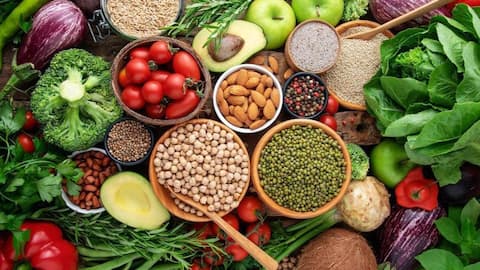'Planetary health diet' could save 40,000 lives daily, study finds
What's the story
A new study has found that following a "planetary health diet" (PHD) could save nearly 40,000 lives every day around the world. The PHD is a flexible eating plan that emphasizes plant-based foods while allowing for some animal products. It aims to improve public health and reduce greenhouse gas emissions from food production by half by 2050.
Emission reduction
Food production and climate change
Currently, 1/3rd of greenhouse gas emissions come from the global food system. The researchers behind the study argue that tackling climate change is impossible without changing eating habits worldwide. They also note that food production is the leading cause of wildlife and forest loss as well as water pollution.
Dietary flexibility
What is the planetary health diet?
The PHD can be adapted to local tastes and preferences, with some versions including animal products while others are vegetarian or vegan. However, all versions recommend eating more vegetables, fruits, nuts, legumes, and whole grains than the current global average. The study highlights that in many regions today diets are unhealthy due to excessive consumption of meat, milk and cheese as well as sugar.
Health advantages
Diets of people in different regions
The study found that people in the US and Canada consume over seven times the recommended amount of red meat under the PHD. In Europe and Latin America, it's five times more while in China, four times more. The researchers estimate that if adopted globally, the PHD could prevent 15 million early deaths a year among adults. This estimate doesn't even factor in obesity reduction from this diet.
Nutritional guidance
Foods to eat on a PHD
The PHD recommends a plant-rich, flexible diet that includes at least five portions of fruits and vegetables per day, three to four portions of whole grains daily, one portion each of nuts and legumes per day. It also suggests one serving of dairy (milk, yogurt or cheese) daily, three to four eggs weekly, two portions each of chicken and fish weekly, and one portion red meat weekly.
